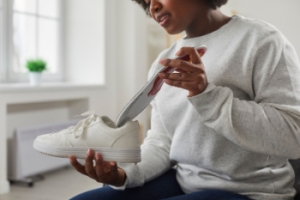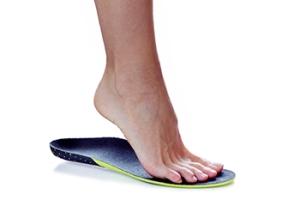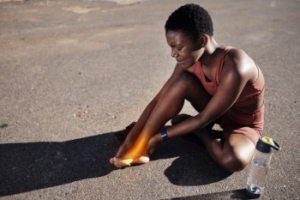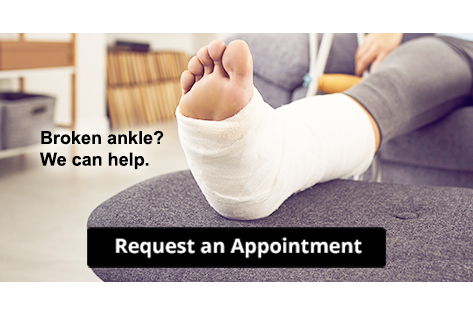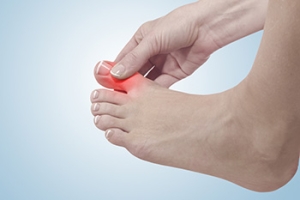Connect With Us
Blog

Foot Orthotics for Rheumatoid Arthritis Pain
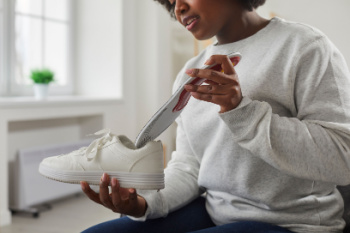
Rheumatic pain and its effect on foot health have been relatively overlooked in the medical community, despite the significant prevalence of foot ailments, particularly as people age. This oversight is surprising considering the potential role of footwear-related issues in modulating rheumatic pain. While much research has focused on structural aspects of arthritis, there has been a lack of emphasis on the foot and non-surgical interventions for addressing lower extremity joint problems in rheumatic diseases. Emerging studies are shedding light on the potential benefits of foot orthotics and specialized footwear in managing conditions like rheumatoid arthritis and osteoarthritis affecting the hip, knee, and foot. Biomechanical evidence suggests that these interventions can alter muscle activation and gait patterns, ultimately reducing joint stress. If you have rheumatoid arthritis and suffer from foot pain, it is suggested that you schedule an appointment with a podiatrist to discuss whether custom-made orthotics can help you to find relief.
If you’re experiencing foot discomfort, have a history of foot and ankle injuries, or are interested in exploring Custom orthotics, don’t hesitate to contact David Williams, DPM at El Paso Feet. Our doctor is dedicated to offering the care required to help you remain pain-free and stay on your feet.
What are Custom Orthotics?
Custom orthotics refer to custom inserts designed for placement in different shoe types, including athletic and formal footwear, with the purpose of alleviating a spectrum of foot-related problems such as flat feet, heel pain, and overall foot discomfort. These inserts are instrumental in providing relief and comfort for a diverse range of foot conditions, including heel pain, and can also act as a proactive approach to injury prevention.
Medical Grade Shoe Inserts:
A diverse array of shoe inserts is available for addressing foot pain, heel discomfort, and minor issues. For instance, you can place arch supports in your shoes to rectify overarched or flat feet, and gel and cushioned insoles are frequently chosen for the comfort and relief they provide from foot and heel pain by reducing pressure.
If you have any questions please contact our office located in El Paso, TX . We offer the newest diagnostic and treatment technologies for all your foot and ankle needs.
Investing in Custom Orthotics Means Investing in Foot Health
Custom orthotics offer a tailored approach to foot health, providing a host of benefits that extend far beyond conventional shoe inserts. One of the primary advantages lies in their ability to address specific biomechanical issues. Unlike off-the-shelf inserts, custom orthotics are crafted based on an individual's unique foot structure, gait, and any existing foot conditions.
The personalized design of custom orthotics ensures optimal support for the arches, promoting proper alignment and distributing pressure evenly across the feet. This can be particularly beneficial for individuals dealing with issues such as overpronation or underpronation, as custom orthotics help correct imbalances that may lead to discomfort or injury.
Beyond biomechanics, custom orthotics can alleviate a range of foot problems, including plantar fasciitis, bunions, and metatarsalgia. They provide targeted relief to areas under stress, reducing pain and inflammation. Additionally, for those with specific medical conditions like diabetes, custom orthotics can play a crucial role in preventing complications associated with poor foot health.
Comfort is another key aspect of custom orthotics. By accommodating the unique contours of an individual's feet, these inserts enhance overall comfort, making daily activities more enjoyable. Whether for athletes looking to optimize performance or individuals seeking relief from chronic foot pain, custom orthotics offer a versatile solution.
Investing in custom orthotics is an investment in long-term foot health. They not only provide immediate relief but also contribute to the prevention of future issues. With the ability to seamlessly integrate into various types of footwear, custom orthotics empower individuals to prioritize foot comfort without compromising on style. In essence, custom orthotics are a personalized prescription for happy, healthy, and pain-free feet.
The Mysteries of Orthotics
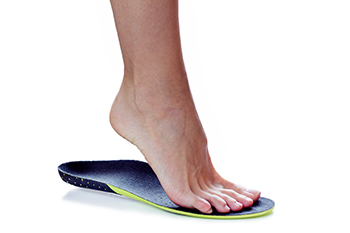
Patients often rely on podiatrists to understand how orthotics alleviate pain and prevent injuries. Determining the right orthotic type demands expertise in biomechanics, gait analysis, and understanding the patient's specific condition. Orthotics function by providing support, cushioning, and realignment to the feet, thereby correcting biomechanical abnormalities or imbalances. They distribute pressure evenly, reducing stress on vulnerable areas and promoting proper foot function. By stabilizing the foot and ankle, orthotics can correct issues such as overpronation or supination, which can lead to various foot and lower limb problems if left untreated. Additionally, orthotics can help improve posture and alleviate discomfort in other parts of the body, such as the knees, hips, and lower back. Podiatrists assess patients comprehensively to determine the most suitable orthotic design, material, and level of support to address their specific needs and enhance overall foot health and function. If you have chronic foot pain, it is suggested that you make an appointment with a podiatrist to determine if orthotics can help you.
If you are having discomfort in your feet and would like to try orthotics, contact David Williams, DPM from El Paso Feet. Our doctor can provide the care you need to keep you pain-free and on your feet.
What Are Orthotics?
Orthotics are inserts you can place into your shoes to help with a variety of foot problems such as flat feet or foot pain. Orthotics provide relief and comfort for minor foot and heel pain but can’t correct serious biomechanical problems in your feet.
Over-the-Counter Inserts
Orthotics come in a wide variety of over-the-counter inserts that are used to treat foot pain, heel pain, and minor problems. For example, arch supports can be inserted into your shoes to help correct overarched or flat feet, while gel insoles are often used because they provide comfort and relief from foot and heel pain by alleviating pressure.
Prescription Orthotics
If over-the-counter inserts don’t work for you or if you have a more severe foot concern, it is possible to have your podiatrist prescribe custom orthotics. These high-quality inserts are designed to treat problems such as abnormal motion, plantar fasciitis, and severe forms of heel pain. They can even be used to help patients suffering from diabetes by treating foot ulcers and painful calluses and are usually molded to your feet individually, which allows them to provide full support and comfort.
If you are experiencing minor to severe foot or heel pain, it’s recommended to speak with your podiatrist about the possibilities of using orthotics. A podiatrist can determine which type of orthotic is right for you and allow you to take the first steps towards being pain-free.
If you have any questions please contact our office located in El Paso, TX . We offer the newest diagnostic and treatment technologies for all your foot and ankle needs.
Foot Orthotics
Orthotics are shoe inserts that are meant to correct an irregular walking gait or provide cushioning to the feet. Orthotics come in a variety of different models and sizes, including over-the-counter and customizable variants. Customizable orthotics can be shaped and contoured to fit inside a specific shoe and are typically prescribed through a podiatrist who specializes in customized footwear and orthotics design and management.
Orthotics are beneficial because they can help prevent injuries from occurring and provide cushioning to keep pain levels down to a minimum. They also allow for the correct positioning of the feet. Orthotics can act as shock absorbers to help remove pressure from the foot and ankle. Therefore, orthotics can make bodily movements, such as walking and running, become more comfortable as well as help prevent the development of certain foot conditions.
Orthotics alleviate pain and make the foot more comfortable by slightly altering the angle at which the foot strikes the ground surface, therefore controlling the movement of the foot and ankle. Orthotics come in different variants and can be made of various materials. To determine what type of orthotic is most suited to your feet and your needs, it is best to consult your podiatrist. He or she will be able to recommend a type of orthotic that can help improve your foot function or prescribe a custom orthotic to best fit your feet.
Osteoid Osteomas
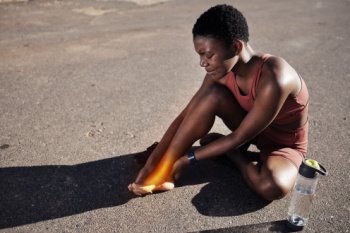
A podiatrist can help diagnose and treat osteoid osteomas in the foot or ankle. These doctors can identify these benign, rare bone tumors and offer treatments like surgery or radiofrequency ablation, or RFA, to relieve pain. Surgery may require limited weight-bearing for a few weeks, while RFA does not have this restriction. Both methods effectively alleviate pain, with RFA often chosen when the tumor is seen on imaging tests. However, if the tumor is close to important nerves or blood vessels, RFA might not be an option. Podiatrists also consider the distance from the tumor to the cartilage to minimize damage during treatment. If you have foot pain that is persistent or worsening, it is suggested that you schedule an appointment with a podiatrist for an evaluation. A proper diagnosis can be made, and proper treatment administered, thereby helping you regain comfort and mobility.
Some foot conditions may require additional professional care. If you have any concerns, contact David Williams, DPM of El Paso Feet. Our doctor can provide the care you need to keep you pain-free and on your feet.
Rare Foot Conditions
The majority of foot conditions are common and can be treated by a podiatrist. Standard diagnostic procedures are generally used to identify specific conditions and treatment can be rendered. A podiatrist also treats rare foot conditions which can be difficult to diagnose and may need extra attention and care.
There are many rare foot conditions that can affect children. Some of these can include:
- Freiberg’s disease
- Kohler’s disease
- Maffucci syndrome
Freiberg’s disease - This can be seen as a deterioration and flattening of a metatarsal bone that exists in the ball of the foot. It typically affects pre-teen and teenage girls, but can affect anyone at any age. Symptoms that can accompany this can be swelling, stiffness, and the patient may limp.
Kohler’s disease - This often targets the bone in the arch of the foot and affects younger boys. It can lead to an interruption of the blood supply which ultimately can lead to bone deterioration. The patient may limp or experience tenderness, swelling, and redness.
Maffucci syndrome - This affects the long bones in a child’s foot leading to the development of abnormal bone lesions. They are benign growths and typically develop in early childhood and the bones may be susceptible to breaking.
A podiatrist can properly diagnose and treat all types of rare foot conditions. If your child is affected by any of these symptoms or conditions, please don’t hesitate to call our office so the correct treatment method can begin.
If you have any questions please feel free to contact our office located in El Paso, TX . We offer the newest diagnostic tools and technology to treat your foot and ankle needs.
Rare Foot Conditions
A podiatrist will be able to address a variety of rare foot conditions, particularly the ones that affect children. The most common are Kohler’s disease, Maffucci syndrome, and Freiberg’s disease. They can be properly diagnosed by having an X-ray taken, but in more serious cases an MRI may be needed. Kohler’s disease generally affects younger boys and bone deterioration may result from an interruption of blood supply. Children who have Kohler’s disease may find relief when the affected foot is rested, and a special boot is worn. Benign growths in the long bones of a child’s foot may lead to the development of bone lesions, and this is known as Maffucci syndrome. People who have this condition find mild relief when custom-made orthotics are worn. Freiberg’s disease targets the ball of the foot and can typically affect pre-teen and teenage girls. The metatarsal bone becomes deteriorated and flattened, and common symptoms include swelling and stiffness. A cast is often necessary to wear with this disease as it can help to reduce existing pain. Erythromelalgia is a rare foot condition, and its cause is unknown. Symptoms of this disease can include intense burning pain and the feet may appear red or feel warm. Relief may be found when the affected foot is immersed in ice water. It can also be beneficial to elevate the foot frequently. If your child complains of foot pain, it is strongly suggested that you consult with a podiatrist who can diagnose and treat rare foot conditions.
Benefits of Custom Orthotics

Orthotics encompass a diverse range of solutions. Custom orthotic inserts, prescribed by podiatrists, cater to individual needs, providing numerous benefits. One significant advantage is pain management. Orthotics are effective in managing pain arising from injuries, arthritis, or surgery. They offer support, relieve pressure on arthritic joints, and can replace or complement pain relievers, contributing to natural pain relief. Moreover, the portability of custom orthotic inserts is a notable feature. They are discreet and concealed within footwear. Orthotics also offer essential injury protection. They create a stable surface, guarding against sprains, fractures, and overuse injuries. They provide support, cradling the feet's contours, and reducing strain and risk. Enhanced activity is another benefit, as orthotics boost confidence and enable individuals to engage in activities they once avoided due to discomfort or deformities. Instead, orthotics facilitate an active lifestyle by preventing injuries and discomfort. Finally, custom orthotics provide a perfect fit tailored to a person's unique needs, considering factors like shoe type, health conditions, and lifestyle. This tailored approach offers a superior solution compared to generic, prefabricated inserts. If you would like to learn more about custom-made orthotics, it is suggested that you make an appointment with a podiatrist who can discuss this further with you.
If you are experiencing discomfort in your feet and would like to try custom orthotics, contact David Williams, DPM from El Paso Feet. Our doctor can provide the care you need to keep you pain-free and on your feet.
What Are Custom Orthotics?
Custom orthotics are inserts you can place into your shoes to help with a variety of foot problems such as flat feet or foot pain. Orthotics provide relief and comfort for minor foot and heel pain.
Over-the-Counter Inserts
Shoe inserts come in a wide variety and are used to treat foot pain, heel pain, and minor problems. For example, arch supports can be inserted into your shoes to help correct overarched or flat feet, while gel insoles are often used because they provide comfort and relief from foot and heel pain by alleviating pressure.
Prescription Orthotics
If over-the-counter inserts don’t work for you or if you have a more severe foot concern, it is possible to have your podiatrist prescribe custom orthotics. These high-quality, custom inserts are designed to treat problems such as abnormal motion, plantar fasciitis, and severe forms of heel pain. They can even be used to help patients suffering from diabetes by treating foot ulcers and painful calluses and are usually molded to your feet individually, which allows them to provide full support and comfort.
If you're experiencing minor to severe foot or heel pain, it’s recommended to speak with your podiatrist about the possibility of using custom orthotics or shoe inserts. A podiatrist can determine which type of custom orthotic or shoe insert is right for you and help you take the first steps toward being pain-free.
If you have any questions please contact our office located in El Paso, TX . We offer the newest diagnostic and treatment technologies for all your foot and ankle needs.
Investing in Custom Orthotics Means Investing in Foot Health
Custom orthotics offer a tailored approach to foot health, providing a host of benefits that extend far beyond conventional shoe inserts. One of the primary advantages lies in their ability to address specific biomechanical issues. Unlike off-the-shelf inserts, custom orthotics are crafted based on an individual's unique foot structure, gait, and any existing foot conditions.
The personalized design of custom orthotics ensures optimal support for the arches, promoting proper alignment and distributing pressure evenly across the feet. This can be particularly beneficial for individuals dealing with issues such as overpronation or underpronation, as custom orthotics help correct imbalances that may lead to discomfort or injury.
Beyond biomechanics, custom orthotics can alleviate a range of foot problems, including plantar fasciitis, bunions, and metatarsalgia. They provide targeted relief to areas under stress, reducing pain and inflammation. Additionally, for those with specific medical conditions like diabetes, custom orthotics can play a crucial role in preventing complications associated with poor foot health.
Comfort is another key aspect of custom orthotics. By accommodating the unique contours of an individual's feet, these inserts enhance overall comfort, making daily activities more enjoyable. Whether for athletes looking to optimize performance or individuals seeking relief from chronic foot pain, custom orthotics offer a versatile solution.
Investing in custom orthotics is an investment in long-term foot health. They not only provide immediate relief but also contribute to the prevention of future issues. With the ability to seamlessly integrate into various types of footwear, custom orthotics empower individuals to prioritize foot comfort without compromising on style. In essence, custom orthotics are a personalized prescription for happy, healthy, and pain-free feet.
Ankle Fracture? Don’t Wait for Treatment
Managing Gout Attacks That Affect the Toes
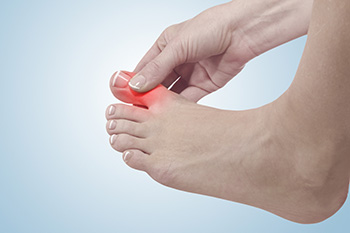 Gout is a form of arthritis that often leads to sudden pain and swelling in certain joints. Gout attacks commonly affect the big toe, as well as other joints like ankles, knees, and wrists. During an attack that affects the toes, resting and elevating the foot can help manage the pain. Staying hydrated and avoiding foods high in purines, including certain meats and seafood, may reduce the risk of future flare-ups. Incorporating certain low-impact exercise can also help combat gout attacks, but it is to be avoided during painful flare-ups. Other treatment options, which a podiatrist may recommend, include medication, cortisone injections, or surgery for more severe cases. If you are experiencing painful gout attacks in the toe joints, it is suggested that you consult a podiatrist who can offer personalized treatment options.
Gout is a form of arthritis that often leads to sudden pain and swelling in certain joints. Gout attacks commonly affect the big toe, as well as other joints like ankles, knees, and wrists. During an attack that affects the toes, resting and elevating the foot can help manage the pain. Staying hydrated and avoiding foods high in purines, including certain meats and seafood, may reduce the risk of future flare-ups. Incorporating certain low-impact exercise can also help combat gout attacks, but it is to be avoided during painful flare-ups. Other treatment options, which a podiatrist may recommend, include medication, cortisone injections, or surgery for more severe cases. If you are experiencing painful gout attacks in the toe joints, it is suggested that you consult a podiatrist who can offer personalized treatment options.
Gout is a foot condition that requires certain treatment and care. If you are seeking treatment, contact David Williams, DPM from El Paso Feet. Our doctor will treat your foot and ankle needs.
What Is Gout?
Gout is a type of arthritis caused by a buildup of uric acid in the bloodstream. It often develops in the foot, especially the big toe area, although it can manifest in other parts of the body as well. Gout can make walking and standing very painful and is especially common in diabetics and the obese.
People typically get gout because of a poor diet. Genetic predisposition is also a factor. The children of parents who have had gout frequently have a chance of developing it themselves.
Gout can easily be identified by redness and inflammation of the big toe and the surrounding areas of the foot. Other symptoms include extreme fatigue, joint pain, and running high fevers. Sometimes corticosteroid drugs can be prescribed to treat gout, but the best way to combat this disease is to get more exercise and eat a better diet.
If you have any questions please feel free to contact our office located in El Paso, TX . We offer the newest diagnostic and treatment technologies for all your foot and ankle needs.
